Current Staff and Students
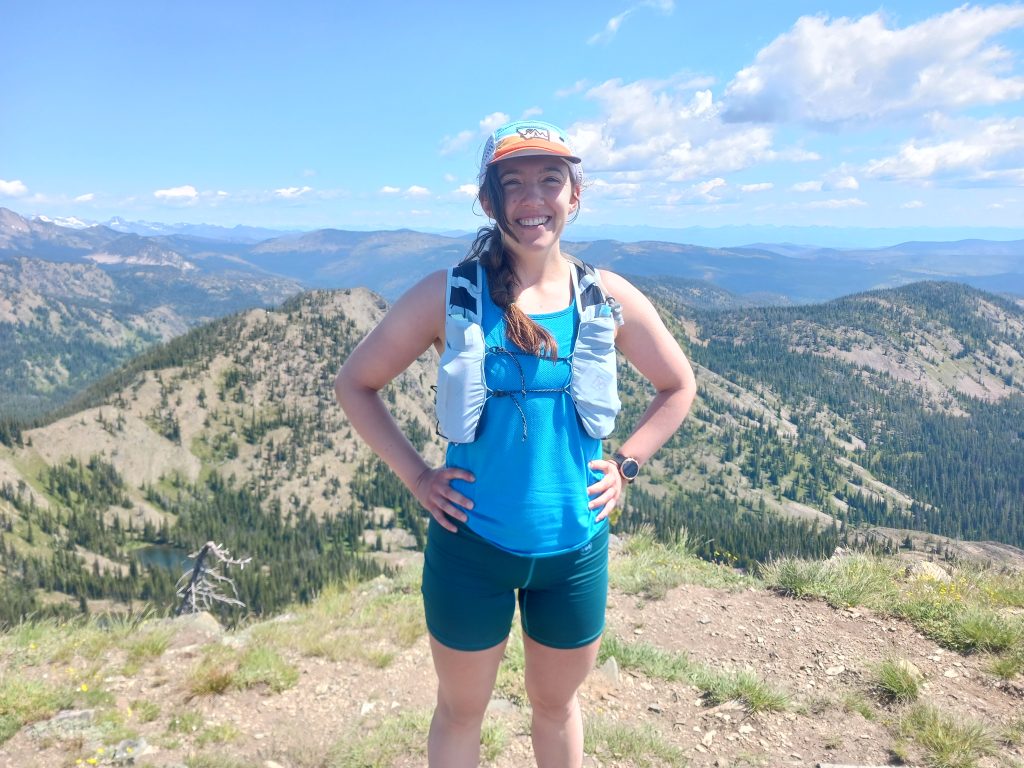
Emma Hauser
Principal Investigator
Assistant Professor, Department of Forest and Wildlife Ecology
Ph.D. Terrestrial Ecosystem Ecology, The University of Kansas
B.A. Environmental Science, Geology, Earlham College
emhauser@wisc.edu
(608)265-5506
I am an ecosystem ecologist and biogeochemist interested in understanding the interactions between soil, plant roots, and human activities that govern carbon and nutrient cycling dynamics. I am passionate about interdisciplinary research and was trained in geology as an undergrad at Earlham College and biology as a graduate student at the University of Kansas. I’ve also spent time learning about Earth Systems Models and enjoy asking questions that span from local to global scales. Outside of work, I am an avid long distance runner and enjoy adventuring with my partner and our dog.
Postdoctoral Researchers
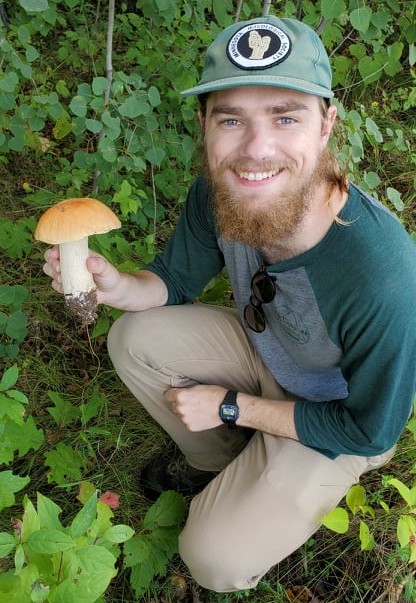
Lang DeLancey
Postdoctoral Researcher
Ph.D. Ecology, Evolution, and Behaviour, University of Minnesota
B.S. Biology, University of Michigan
Lang is an ecosystem ecologist and biogeochemist excited to figure out how soil carbon and nitrogen cycling are responding to human caused change factors such as nitrogen deposition and changing plant communities. His work has focused on how soil fungi (both dead and alive) influence soil processes like decomposition and C/N storage through their interactions with host plants, other microbes, and soil minerals. He did his undergrad in Biology (Paleobiology focus) and Music at the University of Michigan and my PhD in Ecology, Evolution, and Behavior at the University of Minnesota with Sarah Hobbie and Peter Kennedy. When not thinking about science, he enjoys playing old time music, repairing musical instruments, foraging for mushrooms, playing euchre, and canoeing.
Graduate Students
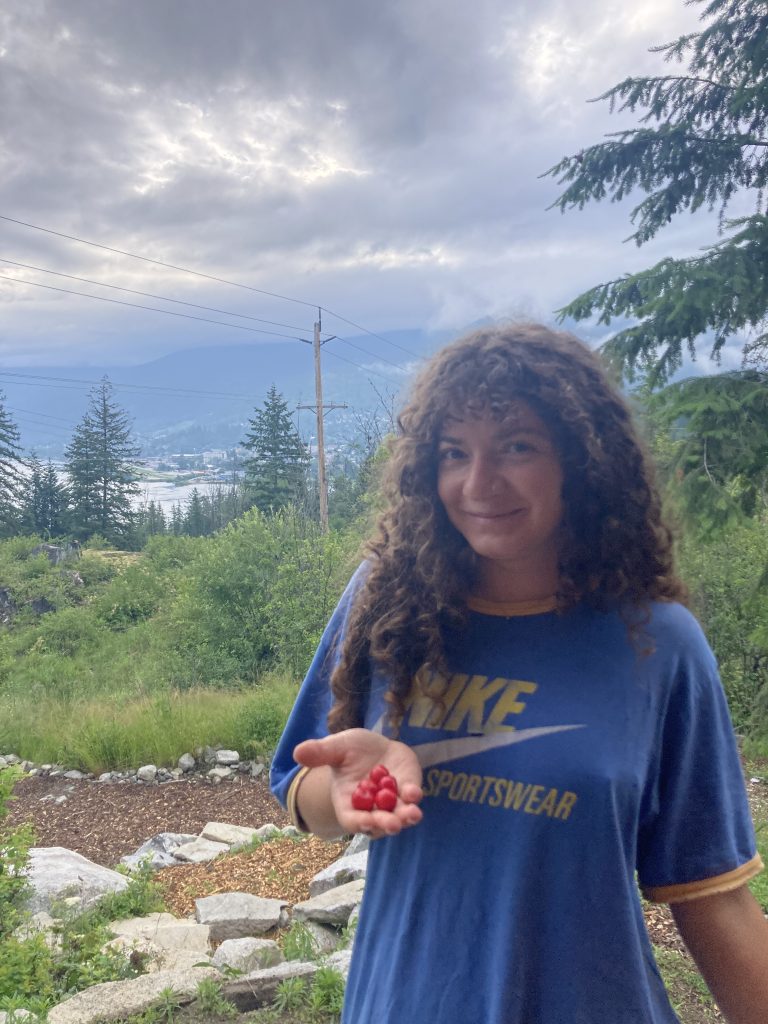
Victoria Shveyster
Ph.D. Student
M.S. Environmental Engineering, University of Wisconsin-Madison
B.S. Biological Systems Engineering, University of Wisconsin-Madison
Victoria is interested in studying how land use affects soil dynamics and particularly how fungi are interrelated to soil health and resiliency to disturbance in northern Wisconsin. Previously her work focused on ecosystem hydrology and how different northern Wisconsin ecosystems partition evaporation and transpiration. She received her undergraduate and master’s degrees in Biological Systems Engineering at the University of Wisconsin Madison. Outside of work, she enjoys biking, foraging for wild foods and reading.
Research Staff
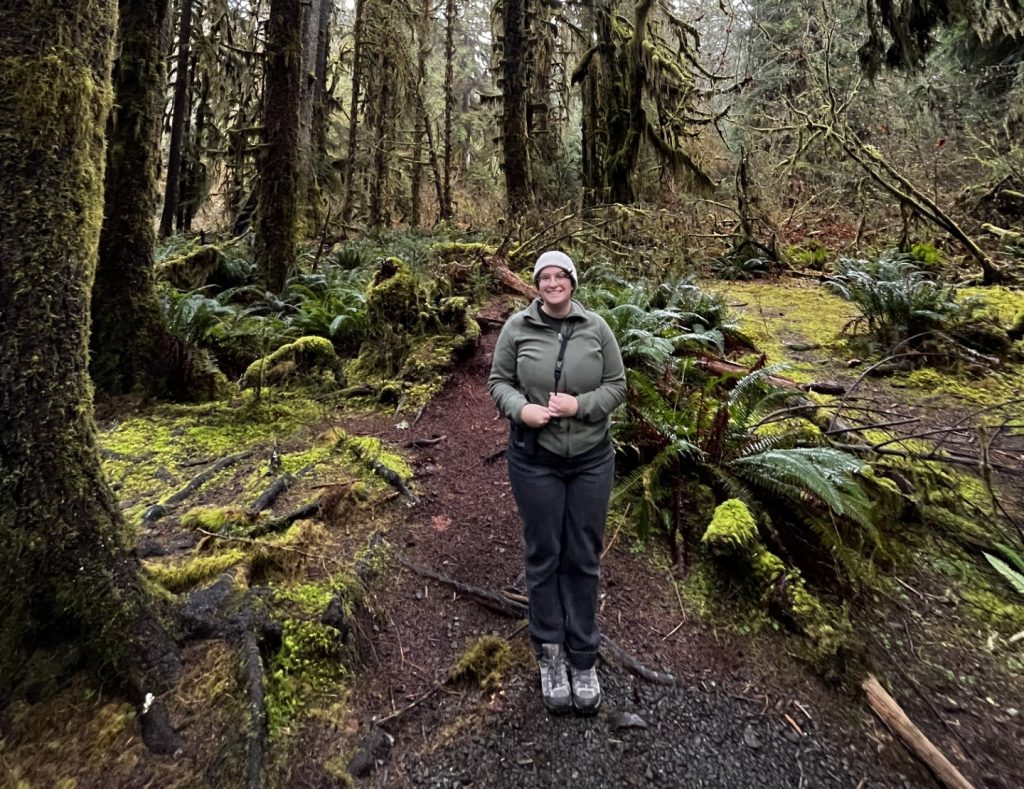
Madeline Sudnick
Research Specialist
M.S. Biology, University of Arkansas
B.S. Biology, Ohio University
sudnick@wisc.edu
Maddie contributes to projects throughout the Hauser lab and is excited to help increase knowledge around soil and forest ecology. She has previously worked to understand wildlife diseases including Chytrid and Mycoplasma gallisepticum. Maddie has also worked in avian developmental ecology and monitoring. Outside of the lab she enjoys hiking, knitting, and trying out new coffee shops.
Current Undergraduates
Katie Fink
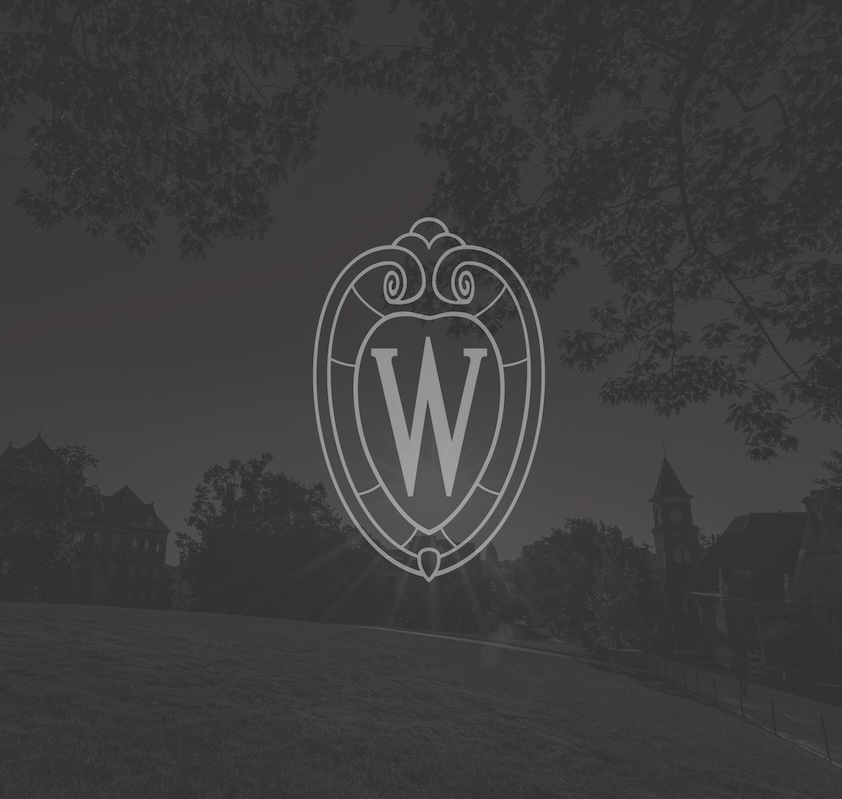
Your name here?
Currently all positions in the lab are filled, but future openings are expected within the next year. If you are interested in the research you see here, I’m always happy to discuss! Please see the opportunities page for additional details.
Lab statement on justice, equity, diversity and inclusion
When looking at a new dataset, my colleagues and I will ask, “What story does it tell?” At its core, science is a process of collaborative storytelling. As a graduate student, I became keenly aware that scientific stories depend not only on the data, but the storyteller, despite science’s claims to objectivity. My peers came from diverse backgrounds, and I remember an international friend showing me how she might describe a scientific concept differently because English wasn’t her first language. Another friend explained that at her indigenous university, people described their ideas about plants differently than at our western science based university. As different examples from my classmates arose, I realized that how we create stories—and how we share and learn science—depends on the perspective and background we each bring.
As a consequence, a key part of my scientific ethic is inclusivity. In service, collaborations, mentorship, and scholarship, diversity, equity, and inclusion are non-negotiable. To solve the enormous environmental and societal challenges we all face, it is crucial that all voices are heard. Doing otherwise is counter to advancing our ability to address these challenges. All people and their voices, regardless of race, color, nationality, creed, gender identity, gender expression, sexual orientation, religion, age, economic class, ability, military status, family or marital status, pregnancy, political ideas, and genetic information must be included in science, research, and education through open, respectful dialogue that accounts for different ways of knowing and relating to each other and the Earth. This inclusivity is especially crucial if we are to arrive at meaningful solutions to global scale problems like the climate crisis.
In mentoring, teaching, collaborating, and scholarship I arrive with a sense of humility—I know that I have a lot to learn from others and their perspectives about the world. By being an active listener and asking about my students’ and colleagues’ individual goals and experiences, I hope to cultivate an environment where everyone feels respected and seen. I also bring accountability to these relationships through an expectation of respect and honesty from both sides and an expectation that everyone involved will show up for each other in the ways that they can. In so doing, I hope that my students, colleagues, and I can reexamine the stories science tells. One step at a time, I aim to contribute to developing a research community where all people feel welcome in the sciences and where we can work together towards healthier communities and a healthier planet.
